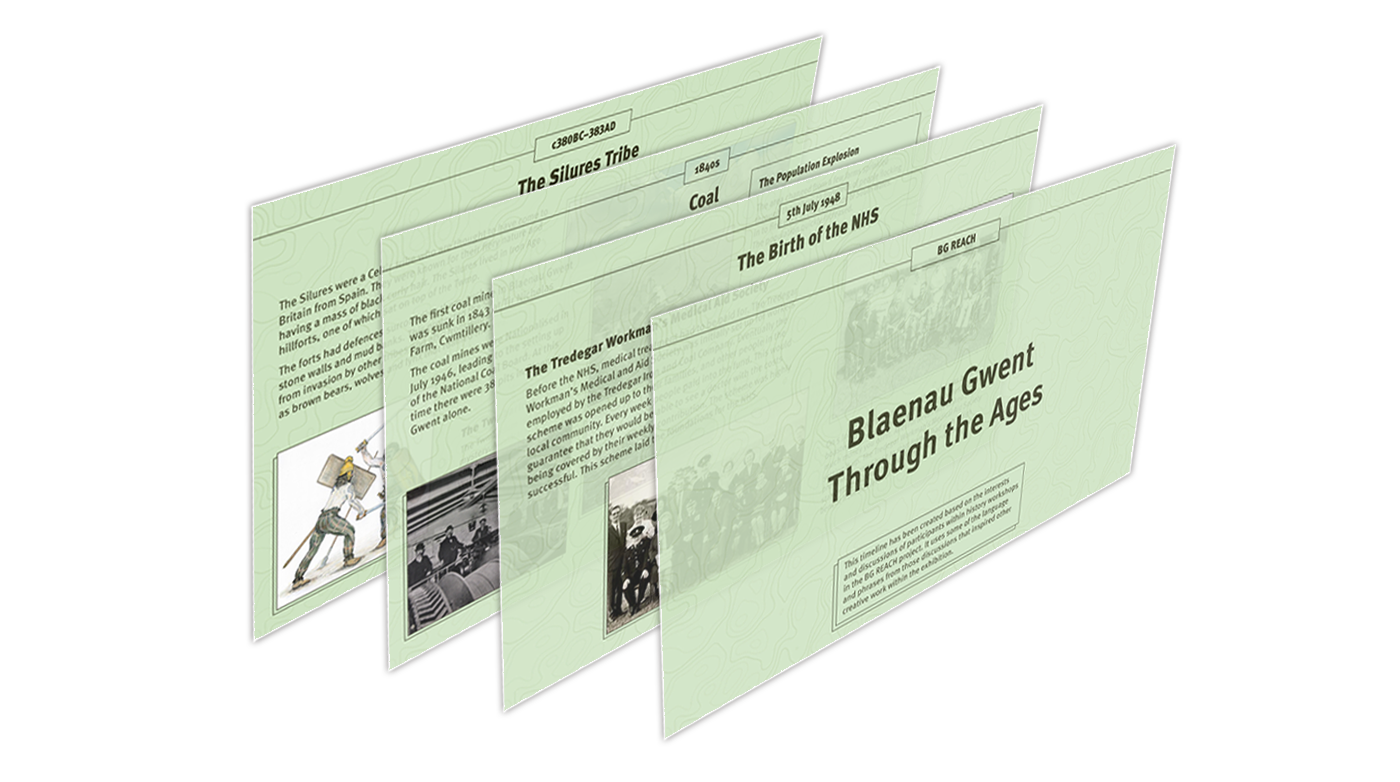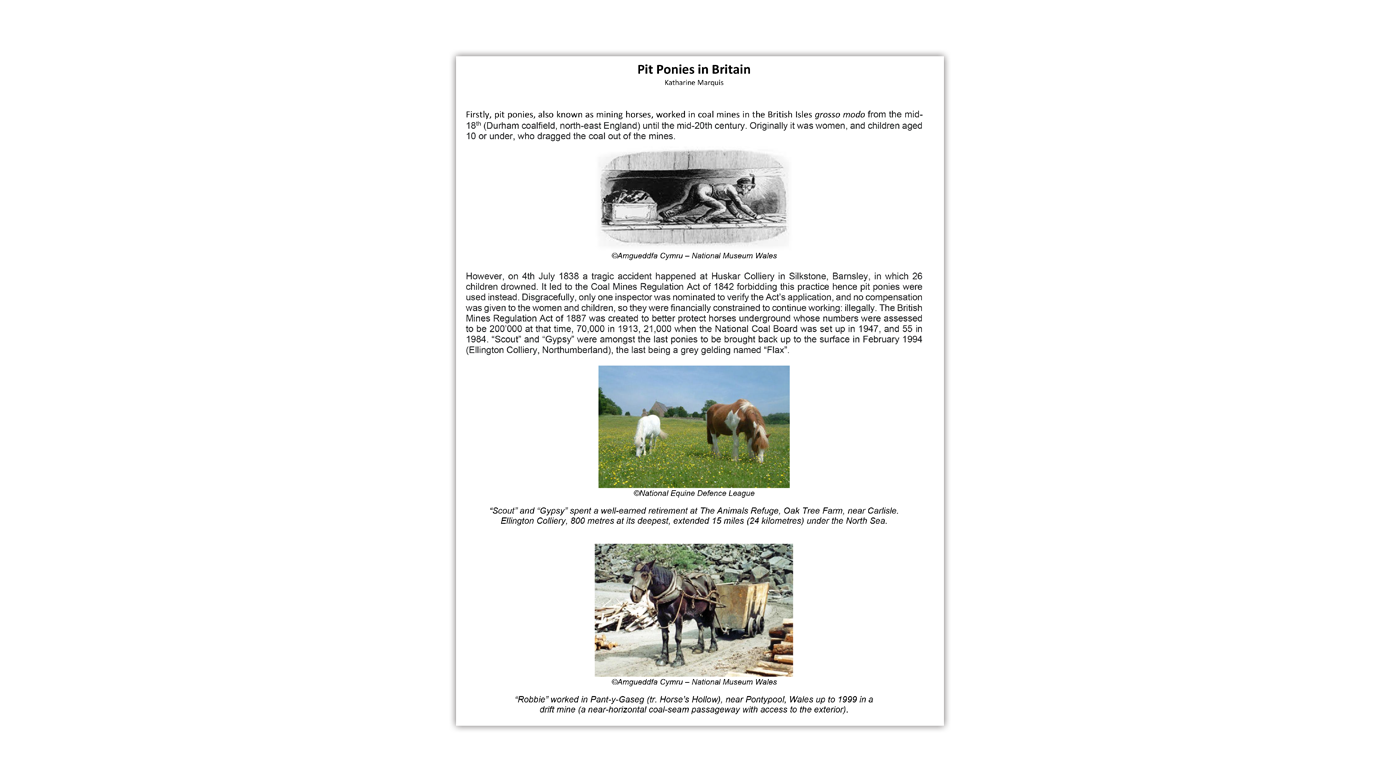Blaenau Gwent Through the Ages
Based on discussions held by the BG REACH History group

This timeline is based on the topics discussed by BG REACH participants in workshops on the local history of the area. It includes verbatim many of the phrases used by attendees at those sessions. In this way it represents the elements of Blaenau Gwent’s history that are important to the people who live there.
The early sections of the timeline cover two thousand years of history in just five slides, from local legends about the mythical Bran the Blessed through invasions by Romans and Normans to the 800 year old church of St Illtyds in Llanhilleth. These slides do a great job of encompassing the national and the local, noting the victories of North Walian kings Gruffydd ap Cynan and Owain Gwynedd one minute and considering the daily lives of medieval people in Blaenau Gwent the next.
The final 250 years of the area’s history receive more detailed treatment across seven slides, with an emphasis on the industrial revolution and its consequences. The impression conveyed by the timeline is that it was the coming of industry, with its impact on population density, ways of life and the very landscape itself, that made the communities of Blaenau Gwent what they are today. Steel and coal each get their own slide, but in both cases the story ends abruptly with the closure of the steelworks and coalmines at the end of the twentieth century.
The closing run of slides trace some major ups and downs from the past 75 years of the region’s history. We move from the pivotal role of the Tredegar Workmen’s’ Medical and Aid Society as a model for the foundation of the NHS to the ultimately unsuccessful miner’s strike of 1984-5. These topics ways reflect the area’s strong association with working class identity and community solidarity. The fact that these events feature so prominently in the timeline suggests an ongoing commitment to the left-wing politics that shaped them. The importance of women as lynchpins of community, especially in times of adversity, is also highlighted.
The final slide looks at the Six Bells Guardian, a memorial to those who lost their lives in the Six Bells disaster. It was unveiled in 2010, almost a decade after the closure of the last steelworks in Blaenau Gwent and over two since the closure of the last coalmine. There is a sense of ambivalence to the description of nature returning to the valleys here; regret for what has been lost through de-industrialisation but also recognition that perhaps something has been gained as well.
Pit Ponies in Britain
By Katharine Marquis

This is a short but detailed essay on the use of ponies in coalmines, by local historian Katharine Marquis. Although Katharine covers the whole of Britain in her discussion, she maintains a particular focus on the Gwent Valleys with mines at Blaenavon, Pontypool and Senghennydd all getting a mention. This is a fascinating look at industrial age mining from an unusual and moving perspective. Many of the images used serve to powerfully communicate what these animals endured.

This page is part of the Blaenau Gwent REACH online exhibition.
Film and audio | Creative writing | Visual art
Digital stories | The history of Blaenau Gwent | About this project
Rate and Review
Rate this article
Review this article
Log into OpenLearn to leave reviews and join in the conversation.
Article reviews